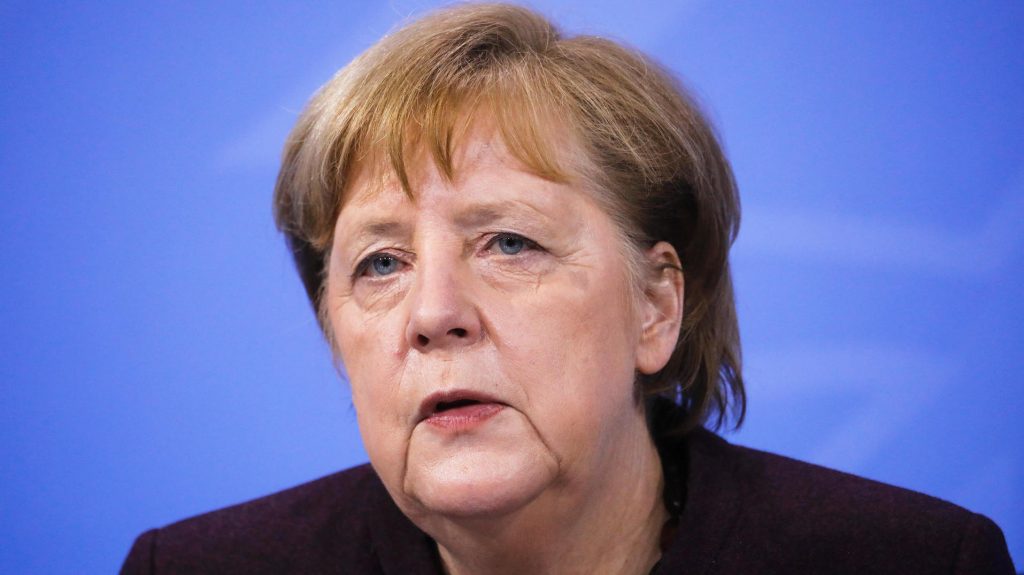Pressure is mounting on Armin Laschet: both the union and his candidate for chancellor are grappling with poor poll numbers in the election campaign. Support now comes from Chancellor Angela Merkel.
in the election campaign union He should now also be the advisor Angela Merkel (CDU) to become active. A CDU spokesperson announced to dpa on Thursday that a date is scheduled for August 21 in the Berlin Tempodrom. Tagspiegel had previously reported this. It wasn’t clear at first whether the outgoing chancellor would be side-by-side with the CDU president and the union’s chancellor candidate. Armin Laschet it will happen.
Both Union and Lachette have recently lost a lot of support in the polls. After the flood disaster in western Germany in mid-July, Laschet made headlines with appearances several times that were seen as unfortunate.
CDU politicians demand more momentum in election campaign
In light of poor opinion polls, leading politicians from the CDU are calling for more momentum in their party’s election campaign. “It doesn’t convince anyone,” Schleswig-Holstein Prime Minister Daniel Gunther told Handelsblatt about the election campaign so far. It now needs a more thorough discussion of the content. “We have to focus on issues that matter to people.” Laschet refused to change his campaign strategy.
Gunther said the CDU/CSU claim should be “at least 30 percent” — and “we are not meeting our demands at the moment.” The eastern commissioner of the federal government and CDU member of the Bundestag, Marco Wanderwitz, was also dissatisfied. “As a union, we have not yet been able to make it clear to citizens that with Armin Laschet we have the best offer for people and the best offer in terms of content,” he told Düsseldorf’s Rheinische Post newspaper. “We have to add more.”
Lachit sticks to his strategy
Laschet refused to change his campaign strategy. “We announce ourselves and our ideas,” he said during a visit to Thurgau in Saxony. “I stick to that strategy.” He does not want to use a more aggressive tone in the election campaign – he is interested in “promoting one’s own path”, which, however, must be done in a “human form”. Refuse personal slander.
And, despite the decline in opinion polls, the union lost nothing good six weeks before the election, Wandrowitz said. “My feeling is that many voters don’t really know who they want to entrust the country with after Angela Merkel. The CDU has to work out whether red, red, green or a traffic light will lead our country to a dead end in the remainder.”
Opinion polls for the union, especially for the candidate of Chancellor Laschet, have declined in recent weeks. A current Forsa poll sees the CDU/CSU at 23 percent – thus ahead of the Greens (20 percent) and the SPD (19 percent). Lachet received only twelve percent approval in the survey.
“must go up”
Prime Minister Günther warned his party against discussing the candidate. “We, as a union, have answered the question of who will be the top candidate for us in the election campaign,” Gunter emphasized. “We would wisely advise getting everyone together now.” He also explicitly referred the appeal for unity to the CSU. “Because the combined success that we have with the unit is also the success of CSU,” Gunter said.
The politician in the Christian Democratic Union referred to the flood disaster as the cause of the previous difficulties the union faced in the electoral campaign, which called for Laschet’s attention and prevented him from participating in the election campaign. “This allows you to get some leftovers in the surveys,” Gunter said. “But the suspension also means things have to go up again.”
Laschet continued his electoral tour across Germany on Thursday. In Dresden, he visited the website of the chip manufacturer Global Foundries. He has spoken in favor of boosting production in Germany – “Germany’s industrial material” will be at risk “if we are not self-sufficient”. Dresden should be promoted as a semiconductor location.

“Food practitioner. Bacon guru. Infuriatingly humble zombie enthusiast. Total student.”







More Stories
KaDeWe stops selling meat and sausages
Another earthquake near the giant Naples volcano
Trump wants to block Harris' access to donations